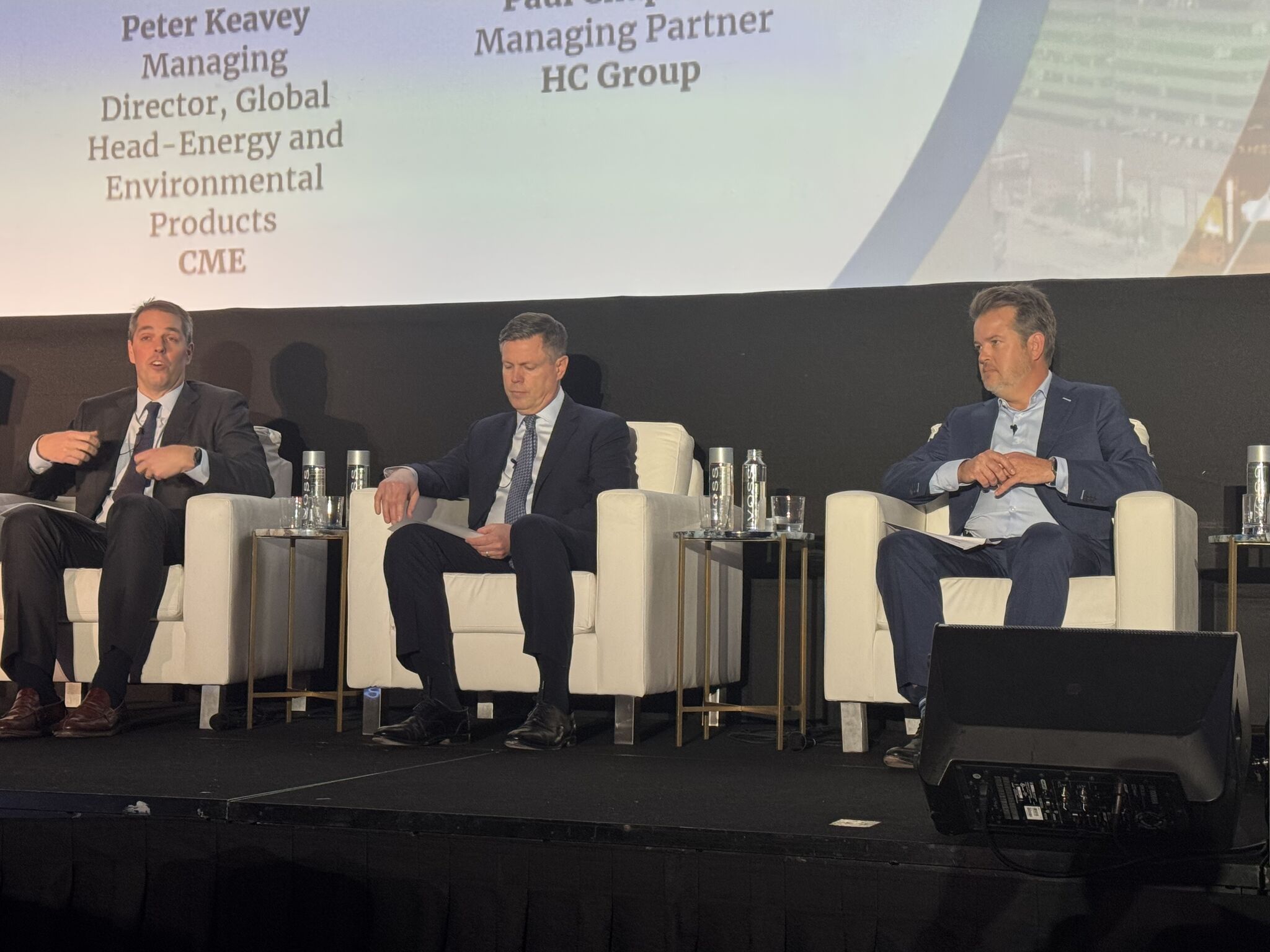On February 6, host Paul Chapman was invited to be on a panel at the Argus Crude Summit Americas in Houston.
Moderated by Matthew Oatway, Peter Keavey, Global Head of Energy and Environmental Products at CME Group and Paul discuss the changing landscape of crude oil trading – especially the rise of Asset Backed Traders and Hedge Funds.
What does that mean for how markets trade and the people who trade them?

Key Talent Takeaways
The Rise of Asset-Backed Trading is Reshaping Talent Needs
More commercial participants - producers, refiners, and major energy firms - are building out asset-backed trading capabilities. These organisations are moving beyond traditional hedging to optimise assets and extract additional margin, increasing demand for traders with deep physical market knowledge. Talent pools need to adapt to this shift, requiring cross-disciplinary expertise in physical and financial trading.
The Demand for Risk and Compliance Expertise is Growing
Geopolitical risks, regulatory shifts, and increasing scrutiny on supply chains have complicated trading operations. Organisations are expanding risk management, compliance, and regulatory teams to navigate evolving sanctions, decarbonisation policies, and trade barriers. This creates talent bottlenecks, as professionals with experience in both commodities and regulation remain scarce.
Hedge Funds and Financial Traders are Shaping Market Dynamics
While the number of hedge funds in crude markets declined slightly, capital concentration has increased. Multi-strategy funds are expanding into commodities, requiring traders with expertise in both derivatives and physical markets. This has led to high competition for talent with expertise in structuring complex financial instruments and managing speculative capital.
Digitisation is Lowering Barriers to Entry, But Raising Talent Challenges
The availability of real-time data, analytics, and AI-driven trading tools has lowered entry barriers for new trading firms. However, firms still struggle to find professionals who can leverage these technologies effectively. Organisations need talent that can interpret data, develop automated strategies, and integrate AI-driven risk management into trading decisions.
Talent Pipelines Need to Support Long-Term Industry Transformation
Companies investing in asset-backed trading are making 5- to 10-year strategic commitments. However, the talent pool has not expanded at the same pace. Many firms are now prioritising leadership development, upskilling programmes, and talent retention to ensure continuity in trading and optimisation functions. The challenge remains attracting and training the next generation of commodity traders in a highly cyclical and volatile industry.
HC Group is a global search firm dedicated to the energy and commodities markets.
Learn more about our Liquid Fuels and Chemicals Talent Practice
Explore the full HC Commodities Podcast archive



